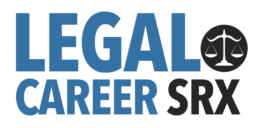Chapter 13 bankruptcy requires that the debtor pay a monthly fee to the Chapter 13 trustee for three to five years. If the debtor has filed a claim, the trustee will send the monthly payments to the creditors.
How Long Does It Take for the Chapter 13 Bankruptcy Process to Start?
If you meet the above criteria, the process begins immediately after you meet with your bankruptcy lawyer. An experienced attorney can help you decide which type of bankruptcy you should file. An experienced attorney will examine your financial information, including income and debt. Then, they will assist you in filing the paperwork necessary to file a bankruptcy petition. It can take up to five months for the process to be completed once the petition has been submitted. You will need to start making monthly payments under your repayment plan within 30 calendar days of filing the petition. It can take up to three to five years for the repayment plan to be completed.
What’s the Next Step if I File for Chapter 13?
An automatic stop will be in effect after your petition is submitted. This will prevent creditors from taking any debt collection actions. The court will appoint the trustee in your case within days. You will also receive information about Chapter 13 and the date of the creditors’ meeting. Creditors must file written objections to your repayment plan before the confirmation hearing.
This post was written by Trey Wright, a lawyer with extensive experience as a bankruptcy lawyer in Pensacola! Trey is one of the founding partners of Bruner Wright, P.A. Attorneys at Law, specializing in bankruptcy law, estate planning, and business litigation.
The information provided on this website does not, and is not intended to, constitute legal advice; all information, content, and materials available on this site are for general informational purposes only. Information on this website may not constitute the most up-to-date legal or other information. This website contains links to other third-party websites. Such links are only for the convenience of the reader, user or browser; the ABA and its members do not recommend or endorse the contents of the third-party sites.





